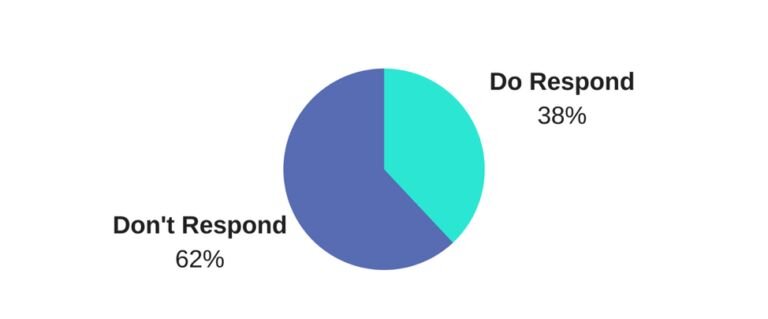Why Customer Satisfaction Matters – And How To Get Started
Elise Musumano
5 min read
Jun 20, 2018

Elise Musumano
5 min read
Jun 20, 2018

When you’re running a business, it’s easy to get tied up with the operations.
But how often are you actively reaching out to consumers to ask for about customer satisfaction?
The answer should be “every day.”
Here’s why: The input is low effort, and the output is invaluable. With Feedback Emails, you can collect guest feedback automatically. All you need to do is check a summary email and respond to complaints (if any).
What it means: operators and customers are not aligned on service.

That’s a huge discrepancy, and the only way to close the gap is to align your perception with their reality by asking customers for their feedback.
What it means: Asking about customer satisfaction is satisfying for your customers.
Not only is a survey asking for input fast to fill out, but if a customer has feedback, they’re going to want to share it.
That’s 80 more participants than would share a positive experience.
What it means: Negative word of mouth is stronger than positive word of mouth.
If your customer has a bad experience, it’s important for them to feel heard. By reaching out and proactively asking for their opinion, you capture it before it hits friends, family, and public networks like Yelp and TripAdvisor.
Truth: 62% of providers do not respond at all to the customer feedback that they receive.
What that means for you: If you reach out even once per week to any of your guests who had a complaint, then you’re doing better than more than half of competitors.
Truth: A simple apology can change a guest’s opinion of you.
A study from the Nottingham School of Economics found that hearing “I’m sorry” triggers an instinct to forgive. In fact, apologizing is actually more effective than offering compensation.
Out of all respondents, 45% withdraw their evaluation in light of an apology, compared to 23% who were compensated.
What Feedback Emails Look Like For The Best Restaurants
There are a few different ways to ask restaurant guests for feedback:
The problem with the first four is that they all require employees to remember and follow the process. This makes it difficult to scale and easy to forget. Which is why the ability to automate is key.
At SevenRooms, we send Feedback Emails to our customers’ guests so they don’t have to, and the surveys are formatted with the restaurant’s brand so it looks like it’s coming from them.
Here are the survey best practices that we follow — and what they look like:
They should send automatically based on an event that signals the end of a service transaction.
Ask at a minimum for a general star rating in an embedded email, and have it capture click responses.
Once a guest clicks a star rating, we then drive them to a landing page that asks for more specific ratings: Food, Service, and Ambience.
Leave room for open-ended feedback so you know exactly how to improve.
A star rating lets you benchmark your guest experience with a number rating and track changes over time, but it doesn’t give you actionable advice for improving. Open-ended questions do.
Pro Tip: Also ask whether they would recommend you to a friend to identify your biggest advocates. (Hint: They’re likely to share a review on whatever network you ask for, so follow up about that later, picking the network that drives your highest spend/cover reservations).
Already a SevenRooms customer? You have access to everything above! Learn more about Feedback Emails.